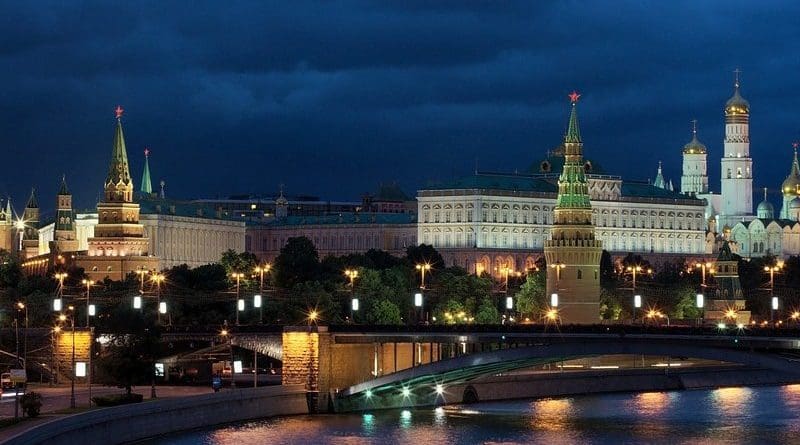All Is Quiet In Baghdad
In some old Soviet film-fairytale, I think it may have been Ali-Baba, there was a memorable character who played the role of a midnight town crier. Something like a watchman, but one who brought the reassuring news. He walked at night through the city, which was crawling with thieves and bandits, beat a special mallet and proclaimed: «All is quiet in Baghdad…All is quiet in Baghdad».
I recall these scenes whenever I see some Russian official – starting with the chief of the Moscow police and ending with President Medvedev – behaving similarly on the TV screen. They never tire of telling us that in Russia, as a whole, all is quiet, all is quiet, all is quiet… Premier Putin is also fond of the term “stability,” but you get the point.
In the meantime, it is enough to look out the window in order to convince oneself that far from all is quiet and not all is stable.
I’m not exaggerating about the window: specifically I happened to glance out my own apartment window recently to catch an boisterous demonstration of Russian ultra-nationalists – not the violent fiasco at the Kremlin walls, but a not insignificant local version in my district. Arrivals from other regions of the country and the near abroad prudently disappeared from all the public places of the district on that day. The police behaved themselves genially in relation to the nationalists, they even allowed them to conduct a concert by the monument to dead warriors-internationalists. And in this too there was a certain cynicism: the warriors-internationalists had died precisely in wars against those whom then nationalists now call «non-Russians» and «churki».
After what happened recently at Manège square in Moscow, the responsible citizens of Russia expected a responsible reaction on behalf of the leadership: they waited for them to appear, give an assessment, condemn, appeal, punish, and for starters – send into retirement the Minister of Internal Affairs Rashid Nurgaliyev, whose subordinate had essentially provoked all of these events to begin with…
Alas, everything was as it always is. Putin kept silent, and then later quietly encouraged the nationalists. Medvedev crowed out something there in Twitter. Nurgaliyev, with a heroic facial expression, promised to punish everyone fiercely. And that’s it. All is once again quiet in Baghdad. At any rate, on the blue screens of this fairy-tale country. And it is not on the screens that the nationalists are once again grouping. The arrivals are promising to repulse them. Peaceful citizens are hiding in the houses, fearing to enter even the metro.
It is recalled, our nano-president Medvedev had somehow promised heroically to fight corruption. Recent research by Transparency International has shown that more than a quarter of Russians, one way or another, give bribes. This statistic come from Vladimir Markin, the official representative of the investigative committee of the Russian procuracy.
In 2010, prosecutors received a grand total of 15,000 corruption cases, however only 6,000 ever made it to trial. Brought to criminal liability were 71 investigators of internal affairs, 3 investigators of narco-control, 11 – from the investigative committee, 13 procurators, 2 judges. And another 8 members of electoral commissions and 11 deputies of various legislative assemblies of the regions. Plus one State Duma deputy.
This, I will repeat myself, despite the fact that the president himself personally promised to mercilessly fight corruption.
Now the president here has promised to fight manifestations of nationalism and with violators of the law.
This means, after a while we ought to expect a burst of disorders and a growth in the number of nationalists.
Why?
Because “all is quiet in Baghdad”.

